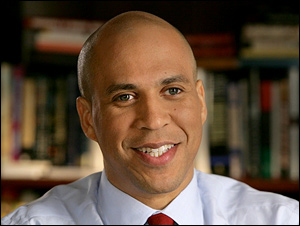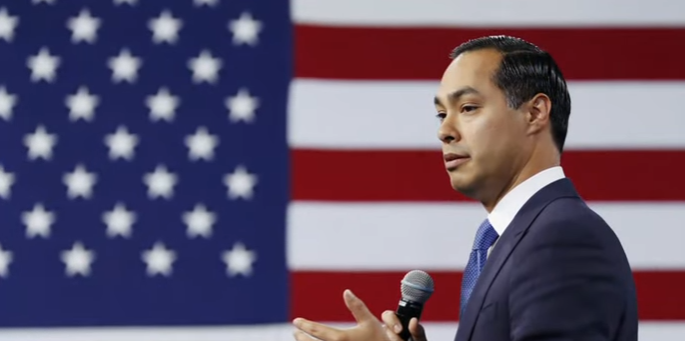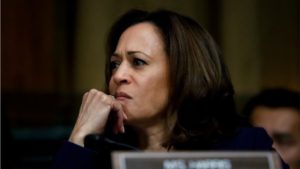
A four-way split? 2020 Democratic presidential candidates (from left) South Bend Mayor Pete Buttigieg, Sen. Bernie Sanders, former Vice President Joe Biden and Sen. Elizabeth Warren. (PBS.org photo)
By Jim Ellis
Jan. 28, 2020 — Now, just about one week from the first votes of the 2020 presidential election campaign being cast in Iowa, the most current polling suggests that we could see a four-way split for delegate apportionment in the first two voting states. After Iowans meet in their precinct meetings next Monday, New Hampshire voters will visit their polling places in the nation’s first 2020 presidential primary eight days later on February 11th.
Two new surveys each come from the two states: YouGov/CBS News and Suffolk University/USA Today in Iowa, and the University of New Hampshire/CNN and Marist College/NBC News in the Granite State.
In Iowa, Suffolk University/USA Today (Jan. 23-26; 500 likely Iowa Democratic Caucus attenders) finds former Vice President Joe Biden leading Sen. Bernie Sanders (I-VT) and the rest of the field, 25-19-18-13-8 percent. In third place is former South Bend Mayor Pete Buttigieg, while Sen. Elizabeth Warren (D-MA) follows, and Sen. Amy Klobuchar (D-MN) takes the drop into fifth place.
Based upon this poll, Biden, Sanders, and Buttigieg would qualify for delegate apportionment, while the actual vote would likely push Sen. Warren over the minimum threshold, as well. Iowa has 41 first-ballot delegates.





 Nov. 12, 2019 — The Cook Political Report in conjunction with the Henry J. Kaiser Foundation of San Francisco sponsored a four-state survey, called the “Blue Wall Voices Project,” covering key Great Lakes states to determine Democratic presidential primary standing within the region among other issues.
Nov. 12, 2019 — The Cook Political Report in conjunction with the Henry J. Kaiser Foundation of San Francisco sponsored a four-state survey, called the “Blue Wall Voices Project,” covering key Great Lakes states to determine Democratic presidential primary standing within the region among other issues. 